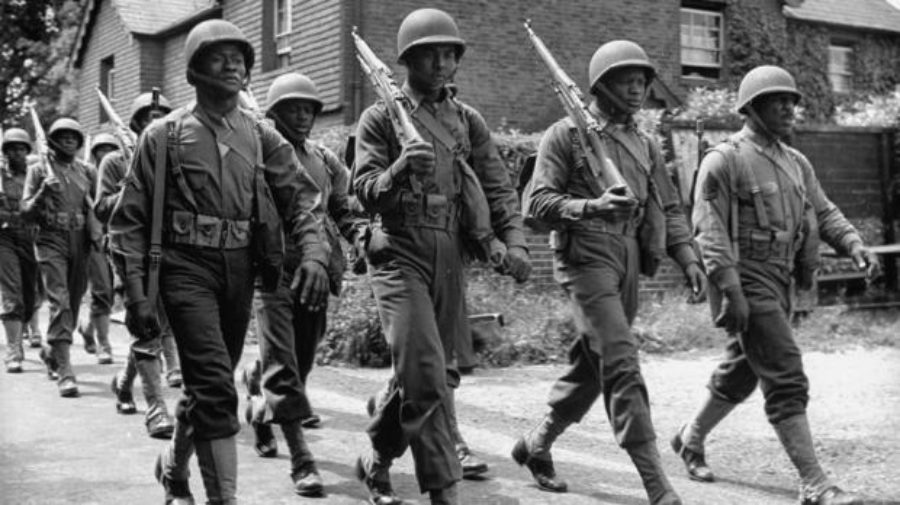
It will be ten years this summer since Vernon Baker died. His story deserves some retelling.
He entered the Army before the Second World War because he needed a job. He quit as a porter on the railroad because he didn’t want the job of a servant. He was living with his sister and brother-in-law in Wyoming. The first recruiter sent him away; “We don’t have no quarter for you people.” Vernon had heard that often looking for work around Cheyenne. But he persisted and the next recruiter wasn’t put off by the color of his skin.
He rose through the ranks by being responsible and doing the jobs asked of him, though he really wanted to be a supply sergeant. When Pearl Harbor brought war and the Army needed it, he was called on to lead men. In the segregated Army of the time, it was black men he led. Though younger than many he commanded, and smaller, he worked to earn their respect. Though he also took their resentful beatings.
He spent a short time early in the war posted at Fairchild Base outside Spokane and knew then he loved this Inland Northwest part of the states. But he got sent to invade Italy and make history.
Vernon told his life story to Idaho Public Television. The interview can be read online. In his words those brutal days (April 5-6, 1945), it sounded like he just did his job. But when 19 of the 25 men in your platoon are killed around you, and you keep your head and act with courage and discipline, it is remarkable. His actions drew attention from someone, and he was awarded the Distinguished Service Cross.
Maybe the story should stop there, after all, Vernon went on to be a paratrooper in Korea, then worked for the Red Cross at Fort Ord, California counselling needy families. He got his wish to hunt in this neck of our woods when he came to the Benewah, outside St. Marries Idaho in the late 1980’s.
But some people noticed some funny numbers and were making a fuss. There were 444 Medals of Honor awarded in WWII, and no black soldier had earned such award, despite over 1.3 million serving. In the early 1990’s, the Army listened and asked for a study. They could find no documents showing that race influenced the award, but “a climate of racism prevented recognition of heroic deeds”. The Army decided to award seven Medals of Honor to black servicemen from World War 2, and Vernon Baker was the only surviving one.
In 1997, when the award was fastened around his neck in the Oval Office, he shed a tear. He said he was thinking of all those men up on that hill. A reporter asked him how he felt about serving in a segregated unit. “I was an angry young man. We were all angry. But we had a job to do and we did it.”
And maybe the story should stop there, with a belated Medal of Honor. Vernon returned to the Benewah and hunted in his old but hearty age.
When he started slurring his words, and the brain tumor was found, he got shipped to Seattle for surgery. He recovered some, but the tumor had spread and Vernon died July 2010.
The bills started coming before he died; big ones, really big ones. Vernon had been a healthy spry man and didn’t need doctors much. He had failed to enroll in Medicare or apply for VA benefits. Brain surgery isn’t cheap. The medevac to Seattle alone was $20,000.
Neighbors kicked in, his widow made payments, and now, ten years later that debt has been paid.
Vernon Baker displayed heroism and courage; his “job to do”. May we all have such courage when faced with a job. We have some big ones before us.
